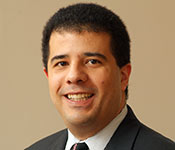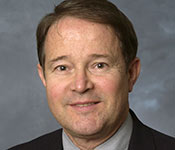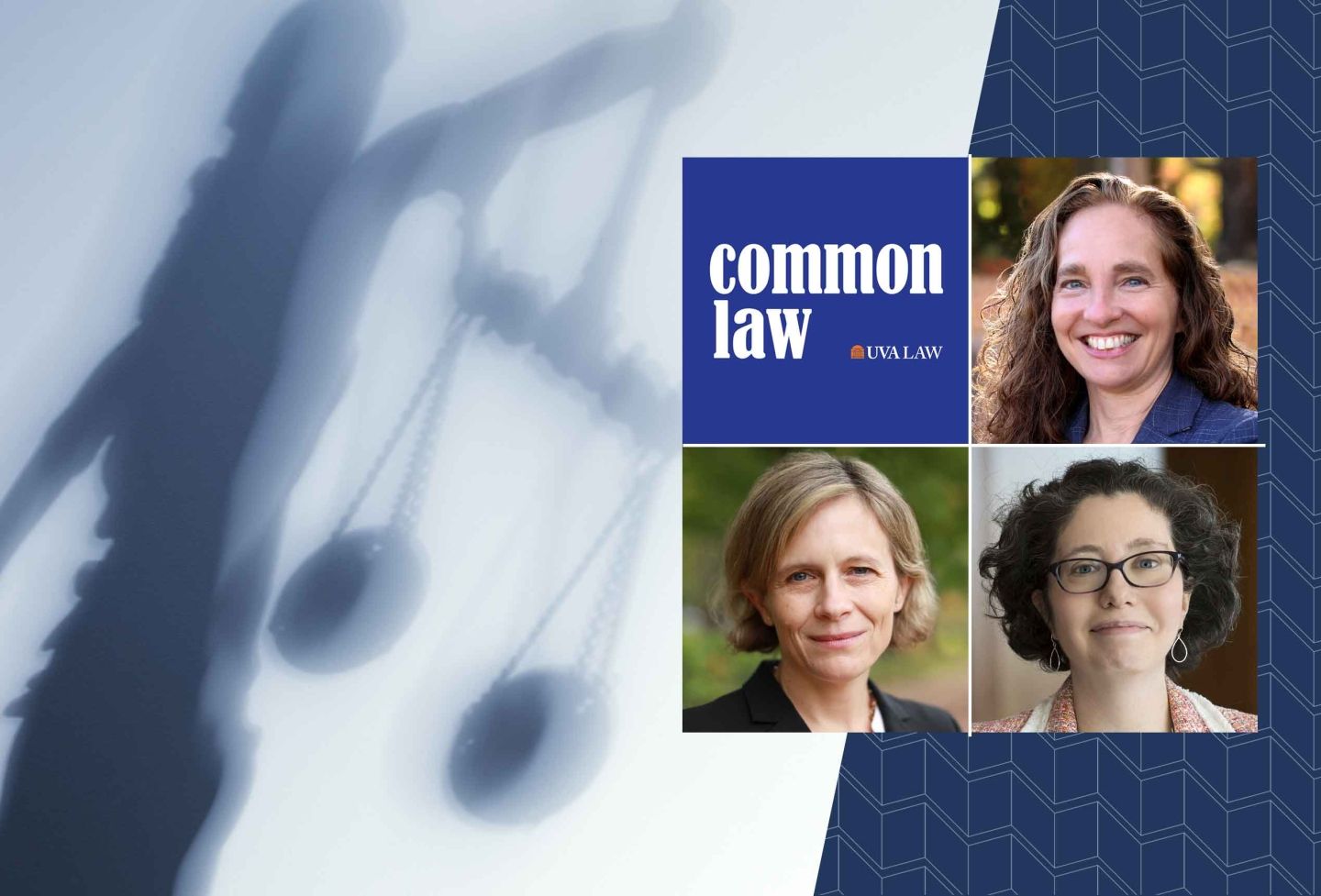Forde-Mazrui, Wardle Debate Same-Sex Marriage, Adoption
A debate on same-sex marriage and adoption brought a standing-room-only crowd to Caplin Pavilion Nov. 13, as Virginia law professor Kim Forde-Mazrui and Professor Lynn Wardle from the J. Reuben Clark Law School at Brigham Young University faced off on one of the most contentious issues in family law.
 Wardle began by citing the list of nations and states that support same-sex marriage—only 20 out of 192 allow same-sex marriages, same-sex unions, or less-than-marriage equivalent benefits to same-sex couples. Only one state allows same-sex marriages while six allow same-sex unions and a few others allow less-than-marriage equivalent benefits to same-sex couples.
Wardle began by citing the list of nations and states that support same-sex marriage—only 20 out of 192 allow same-sex marriages, same-sex unions, or less-than-marriage equivalent benefits to same-sex couples. Only one state allows same-sex marriages while six allow same-sex unions and a few others allow less-than-marriage equivalent benefits to same-sex couples.
 Looking at the other side of the ledger Wardle said, “Same-sex marriage is explicitly prohibited in the laws of 45 states and more than 70 nations…banned by state constitutions in 27 states… and banned in the national constitutions of 32 nations.” He explained that the United States doesn’t have a similar provision in its constitution because it was not an issue in the late 1700s and because in a federal society marriage laws are among those rights reserved for the states to legislate.
Looking at the other side of the ledger Wardle said, “Same-sex marriage is explicitly prohibited in the laws of 45 states and more than 70 nations…banned by state constitutions in 27 states… and banned in the national constitutions of 32 nations.” He explained that the United States doesn’t have a similar provision in its constitution because it was not an issue in the late 1700s and because in a federal society marriage laws are among those rights reserved for the states to legislate.
“The benefits that come to children, to families and to society as a whole [through marriage] are so substantial that it deserves and receives, historically and in all societies, a special preference,” Wardle said. Laws regulate marriage in the public interest, he explained, “because the consequences are so profound…particularly when there are vulnerable people whose interests are at stake.
“Marriage between other than a man and a woman has never been legalized in the history of the world until 2001, when the Netherlands did it,” Wardle added. He argued that the contributions to society of a marriage between a man and a woman are far greater than a marriage of same-sex individuals. While marriage between a man and women “is deeply rooted in the history and traditions of our people,” he said, “same-sex marriage has never been deemed a fundamental constitutional right.”
Putting the issue in historical context, Wardle noted that in the early part of the last century, the theory of eugenics was the social movement that redefined marriage for that time but that the real agenda was separation of races. “Today we have a similar movement attempting to capture marriage in order to promote their social agenda, and I think that their tactic is as impermissible and as dangerous to society as was the movement of the white supremacists and the social eugenicists.”
Moving to the matter of gay and lesbian adoptions, Wardle said 14 states and the District of Columbia allow gay and lesbian adoption either by statute or appellate court ruling, seven states do not allow such adoptions, and the other 29 states have no laws on the issue. Only 15 out of 192 nations allow adoption by gays and lesbians in some or all jurisdictions of those countries, he said.
Wardle called social science studies that have been seen as in favor of gay and lesbian adoption “junk science.”
“Methodologically those studies are flawed, they’re unreliable, and even the biased studies suggest potential harm to children,” he said.
“The harm,” Wardle concluded, “is the transformative effect of inclusion. That the qualities and characteristics that we associate with marriage will be transformed by the inclusion of the qualities and characteristics associated with gay and lesbian relations.”
In his response, Forde-Mazrui acknowledged that this was a divisive topic. “It divides families, friendships, communities, political organizations, and in Virginia alone there are churches that are splitting up over issues regarding gay rights.”
He argued, however, that such division does not occur among social scientists, national organizations of psychiatrists, psychologists, pediatricians, and social workers, all of whom have found that “there’s no detrimental risk of any significance when it comes to sexual orientation of parents.”
Forde-Mazrui agreed with Wardle on being pro-marriage. And, he said, “One thing we are not unclear about is the importance of…children having permanent parents.” However, he warned against using statistics in judging where children should best be raised.
Forde-Mazrui said that statistics, for example, show that families of veterans have significantly higher rates of domestic violence, alcoholism, drunk driving, suicide, and child abuse. Statistics also indicate that “states that predominantly go Republican have higher rates of divorce, teen pregnancy, and out-of-wedlock births.”
Even though these risks exist, we don’t deny marriage or adoption to individuals based on whether they are veterans or from states that are predominantly Republican. Instead, Forde-Mazrui said, “We think we can address the risk in more direct ways that hold people more personally accountable….We believe that it’s better to go directly at those who perpetrate irresponsible behavior than to lump them in together and treat everyone as a group.”
Forde-Mazrui also cited past laws and social mores allowing racial segregation in marriage and education that, although popular into the 1970s, are rejected today. He noted the similarities with views held today regarding same-sex relationships and societal fears for children raised in such relationships.
“If you hold to the fact that the primary conduct [of gays and lesbians] is not wrong, I think it will strike you how much the arguments seem to rely so easily on over-generalizations…exaggerations of the risks involved, unsubstantiated claims, stereotypes — and I think the driving factor is fear.” To those who believe the primary conduct is immoral he said, “I caution you to beware… that your fears and concerns… may lead you…to inadvertently exaggerate the risks and fear to children….Be careful to properly give it the weight it deserves.”
He urged students to hold on to their beliefs but to remember that, “We have a tradition in America of separating faith from public policy…So, with respect to marriage and adoption…let’s opt for a light hand from government to maximize liberty and equality for all.”
The event was sponsored by the Federalist Society and ACLU-UVA Law.
Founded in 1819, the University of Virginia School of Law is the second-oldest continuously operating law school in the nation. Consistently ranked among the top law schools, Virginia is a world-renowned training ground for distinguished lawyers and public servants, instilling in them a commitment to leadership, integrity and community service.


